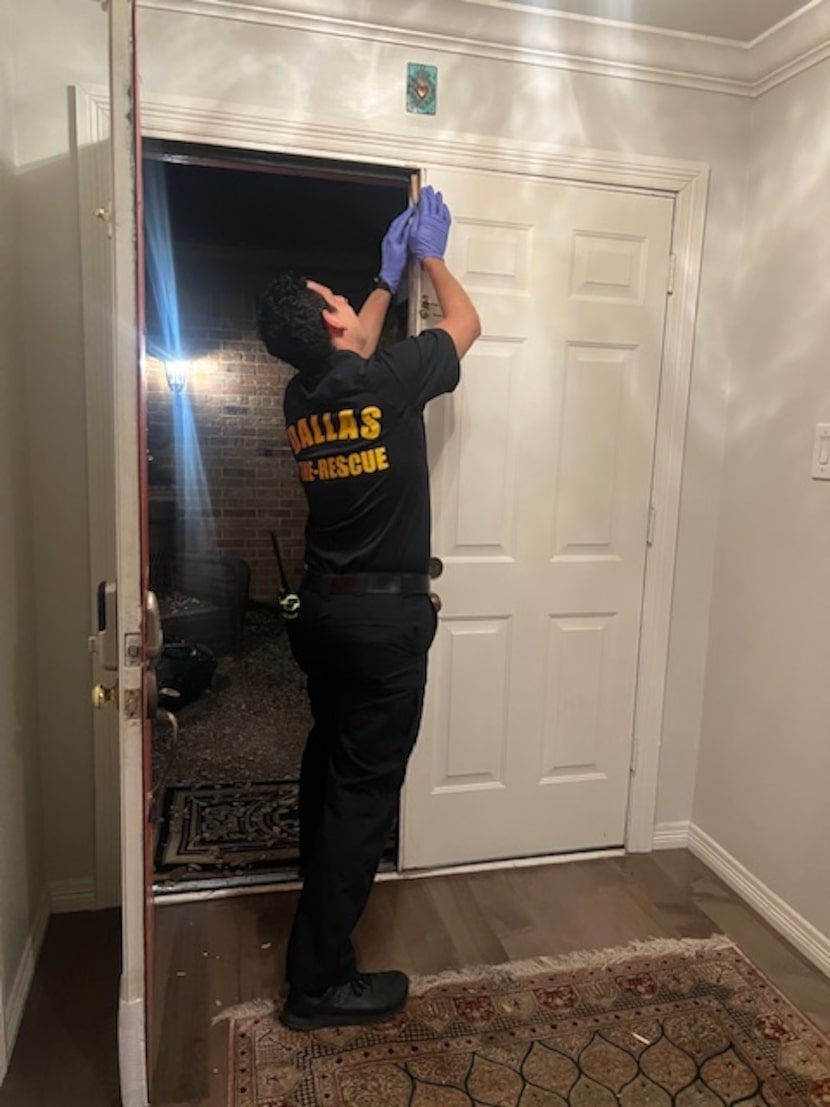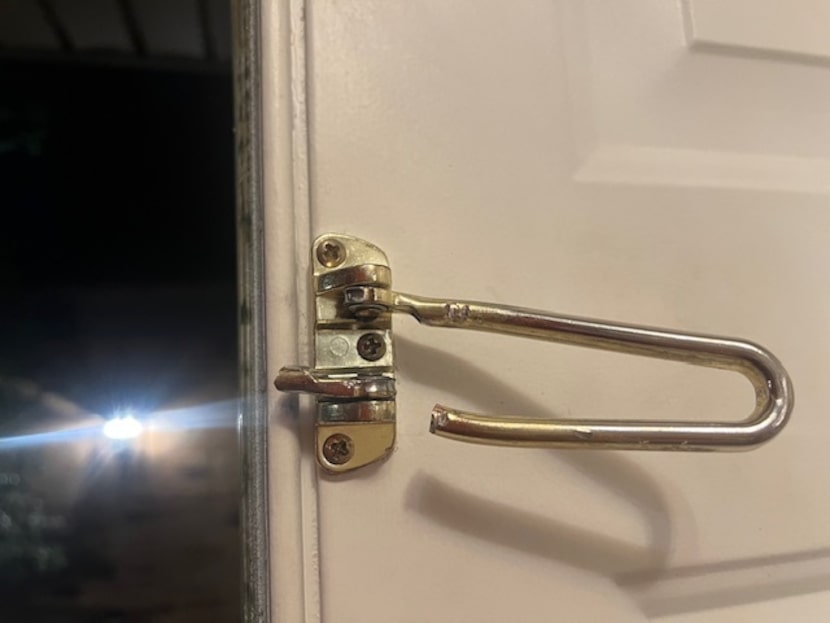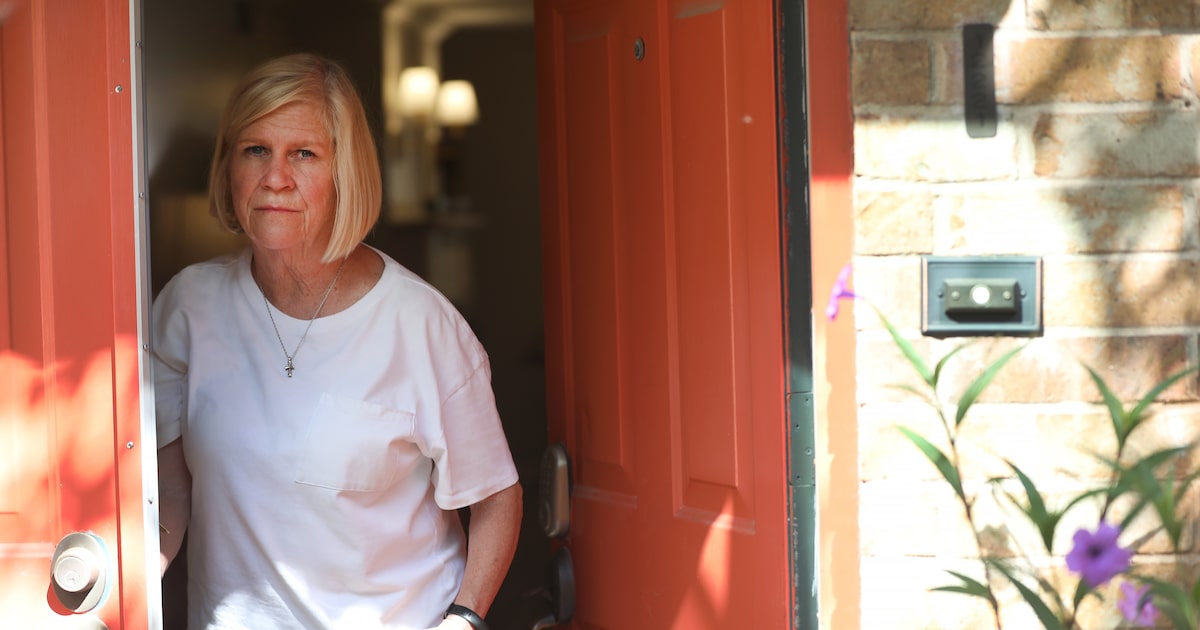Just before dawn, Deborah Kane of Dallas was brushing her teeth when a deafening crash echoed through the house—BAM! BAM! BAM!
Through the window, she saw flashing emergency lights outside.
Startled, she then saw firefighters forcing their way through her front door.
“Not an intruder,” she recalled thinking, relieved—but confused. Why were first responders breaking into her home?
Watchdog Alert
In a story first reported by CBS11, it turns out the fire-rescue crew from Station No. 20 on Montfort Drive had been dispatched. But a mix-up sent them to Kane’s house instead of what she believes is a nearby nursing facility, which may have been the intended destination.
Her front door was splintered and broken, but Kane’s first concern wasn’t the damage. “I just kept thinking,” she said, “what if someone who really needed help wasn’t getting it?”
Promising city assistance
She overheard a firefighter on the phone saying, “We scared the bejesus out of this lady.”
Another firefighter told her not to worry. She recalls him telling her to contact the city’s Office of Risk Management. The city would help her with the repair or replacement, she was told.

A Dallas Fire Rescue officer tries to repair Deborah Kane’s door after officers knock it down to gain entry. But it was the wrong house.
Courtesy of Deborah Kane
She appeared to have a good case. She fetched an estimate for replacement.
Afterward, she went to the fire station to get a copy of the incident report. She also filled out the necessary claims form to get $4,100.
A woman in the city’s risk management told her it was Dallas Fire Rescue’s responsibility to fix this. But the firefighter had told her it was the city’s problem.
After a month of waiting, she finally heard from the city.
The city cited a state law, the Texas Tort Claims Act, that only allows Texans to file lawsuits or seek insurance claims from governments ― for very narrow reasons.
The claims must be caused by property damage caused by a city employee’s wrongful or negligent operation of a motor-driven vehicle or motorized equipment.
In a letter, the city claimed that her loss was not caused by a city employee’s wrongful or negligent operation or use of a motorized vehicle.
The letter concluded, “The city of Dallas regrets to inform you that your claim is denied.”
I placed calls to Dallas Fire Rescue and the Office of Risk Management, but no one returned my calls.
King does no wrong
This Texas tort law is based on English common law that “The King could do no wrong.”
For political subdivisions this is called “governmental immunity,” and for state law, it’s called “sovereign immunity.”
I learned about this governmental loophole 15 years ago, when I wrote about a preacher whose car was struck by a falling streetlight. His car was badly damaged, but the city of Fort Worth refused to pay.
A city spokesperson at the time explained, “Just like every other city in Texas, our liability is determined by state law. That law is in place to protect the public funds belonging to our taxpayers. Disregarding this law would obviously set a precedent with the possibility of great costs to our taxpayers.”
What are Kane’s options? She has so few. She could go to small claims court, but the possibility is strong that a Justice of the Peace could toss the case out because of the immunity law.
She could try to hire a lawyer and fight on the grounds of negligence ― not the firefighters, but perhaps the dispatcher who sent them to the wrong address. But what lawyer wants to go to court to help a client recover a paltry $4,000?
She could also make a claim on homeowners’ insurance. But that doesn’t make sense because her deductible is $4,000.
In the end, sadly, she’s likely to be left holding the bill— another Texan caught in a system designed to protect the government, not the governed.

Part of the lock Dallas Fire Rescue broke when entering the wrong house on an emergency in 2025.
Courtesy of Deborah Kane

